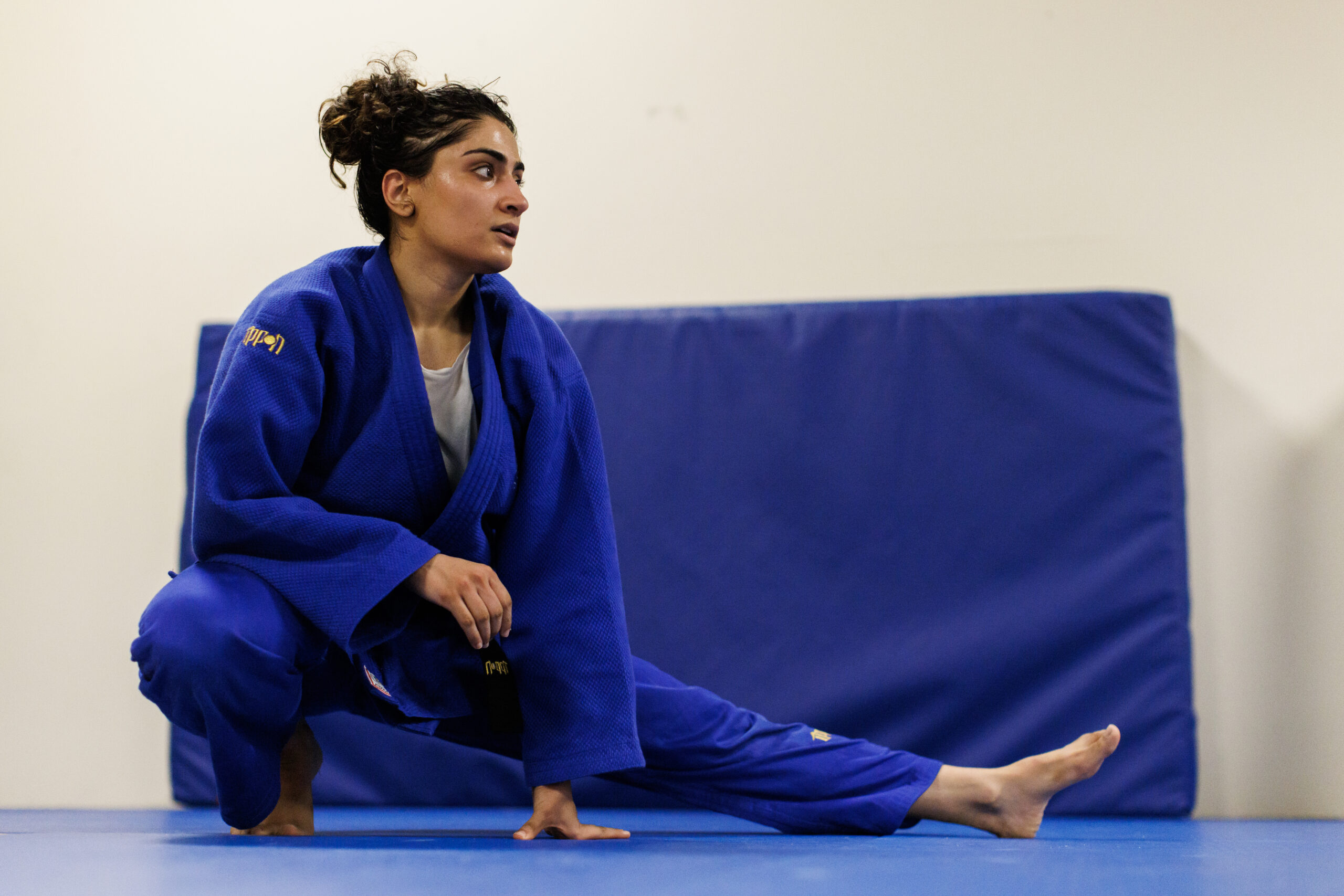By Levon Sevunts | 19 June 2023
Nigara Shaheen was only an infant when her parents were forced to flee Afghanistan to escape a ravaging civil war in 1994.
In complete secrecy, they trekked through dangerous mountain backroads before reaching safety in neighbouring Pakistan.
“They walked for two days and two nights. I was six months old, so I don’t know what they went through, but I know that it must have been really hard,” says Nigara, speaking from her student dorm room in the Toronto suburb of Scarborough.
The 29-year-old Olympian judo wrestler knows a thing or two about tackling adversity.
Growing up in Peshawar, in northwest Pakistan, Nigara watched her parents struggle to adapt to their lives as refugees. They worked hard to provide for their family and give back to the community.
“My mom is a feminist, she’s an activist, and from that time, she worked for the next generation of Afghanistan, trying to empower women, especially girls,” says Nigara. “My dad used to write articles for different websites so that we would have a source of income to study.”
They also encouraged their children to pursue their passions.
For Nigara it was martial arts, especially judo, which she started practicing at the age of 11. Nigara quickly progressed and was already a member of the Peshawar Region team by the time she graduated from high school.
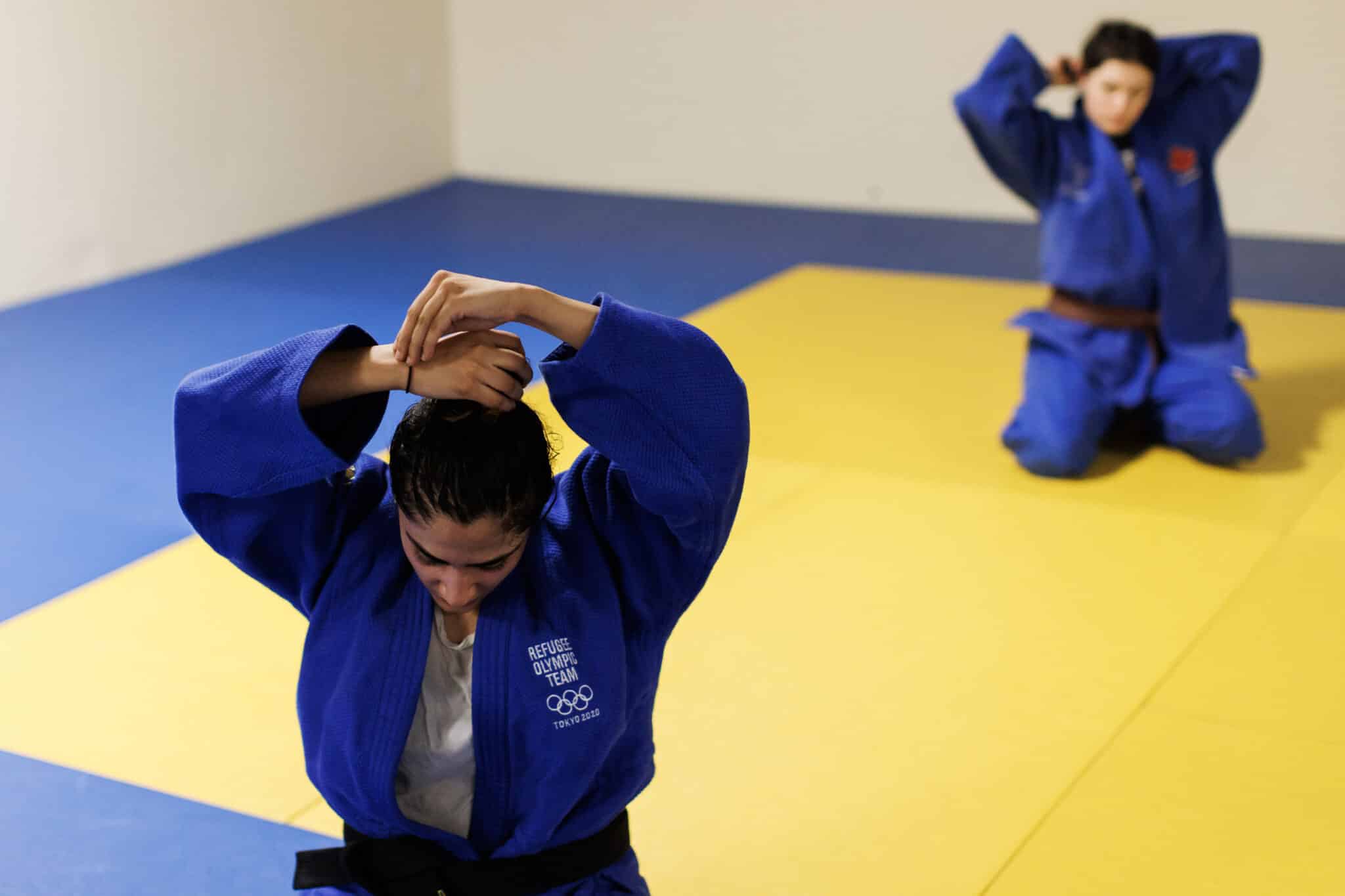
Nigara’s parents wanted her and her siblings to get a university education, but the family couldn’t afford the tuition fees in Pakistan. Meanwhile, monumental changes had taken place in Afghanistan, offering new educational opportunities.
Nigara applied for a merit-based academic scholarship offered by the U.S. embassy in Kabul to study at the American University of Afghanistan.
Almost 18 years after she was whisked out of Afghanistan, Nigara and her family returned to their homeland to begin the next chapter of their lives.
There were no other women judo wrestlers at her gym, making it extremely challenging to train properly.
In a society where women and men are not supposed to mingle freely, let alone wrestle together, Nigara also faced constant harangues.
Her parents took turns chaperoning her to training practices twice a day to provide her with some physical security. But they were powerless to stop the bullying and harassment Nigara faced online.
“I was really bullied and cyberbullied,” Nigara says. “Even my close relatives criticized my mom, ‘How are you going to a gym and you’re watching your daughter wrestling with men?’”
After graduating from the American University of Afghanistan, Nigara began working at the Afghan Ministry of Finance but had to resign from her position to participate in the 2017 Asian Judo Championships held in Hong Kong.
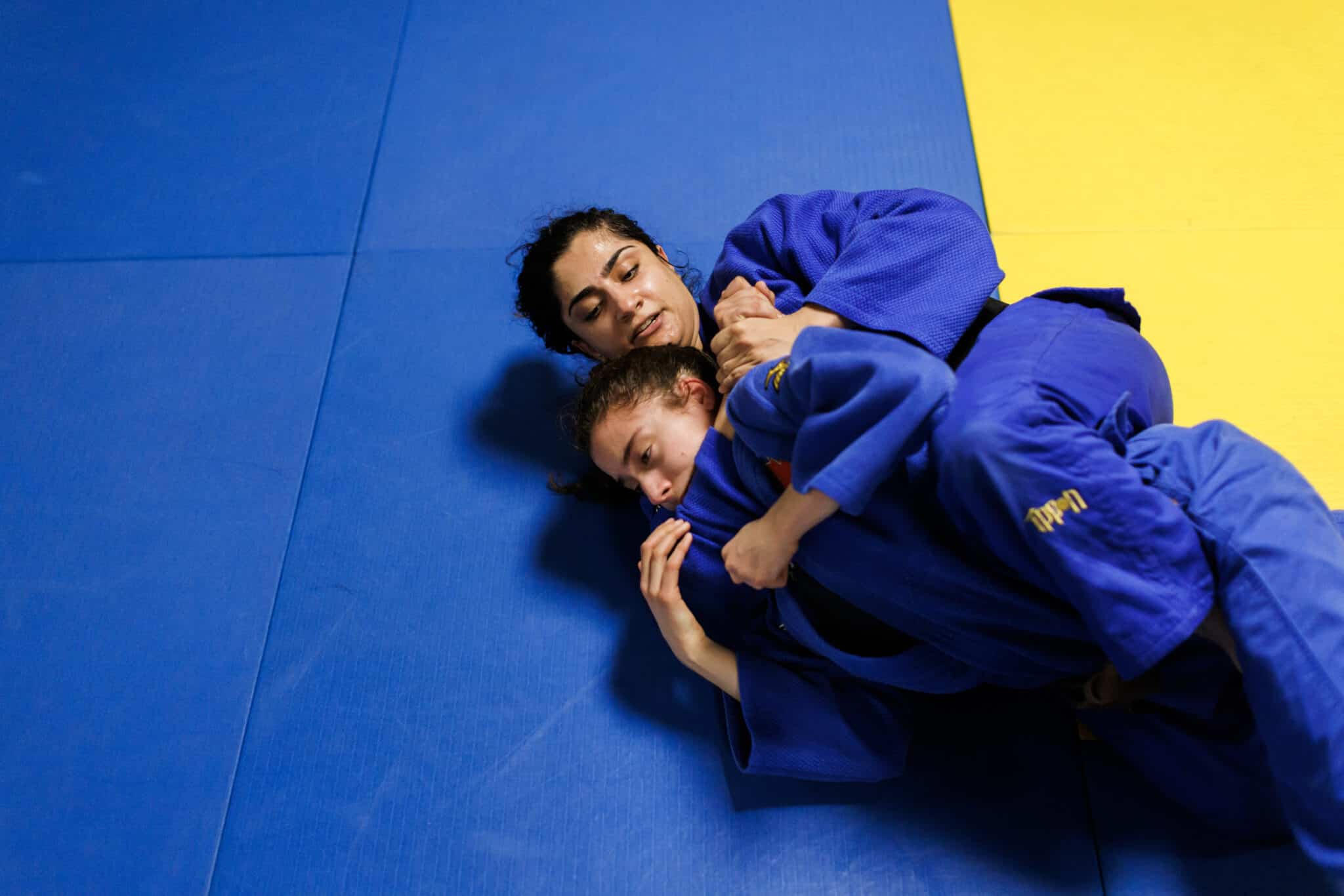
“As usual, I was in a situation where I had to choose between the two – either sports or my job.”
Nigara also wanted to continue her education and get a master’s degree, so she started looking for scholarship opportunities around the world.
Eventually, she landed a scholarship for a master’s degree in international trade from the Ural Federal University in Yekaterinburg, Russia.
At first glance, studying in Russia made a lot of sense as the country has one of the world’s strongest wrestling traditions and a powerful women’s judo team. But Nigara soon discovered that being an outsider meant she couldn’t access the same level of training and resources.
“Things were not how I expected,” she says, “I have trained in different judo clubs and everywhere they were very welcoming, but the gym I went to was not so welcoming.”
Nigara wasn’t about to tap out, though.
She kept showing up at the gym every day despite not feeling welcome. Eventually, she competed in three major competitions: the Yekaterinburg Grand Slam in 2019, the Düsseldorf Grand Slam in 2020 and the Kazan Grand Slam in 2021.
“I didn’t have the proper judo uniform to compete, I didn’t even have a back number, and I was totally alone,” Nigara says. “[Once], I had to lose five kilos within two weeks. You know, the only way for me to do so, I starved myself. I needed to compete no matter how bad it was.”
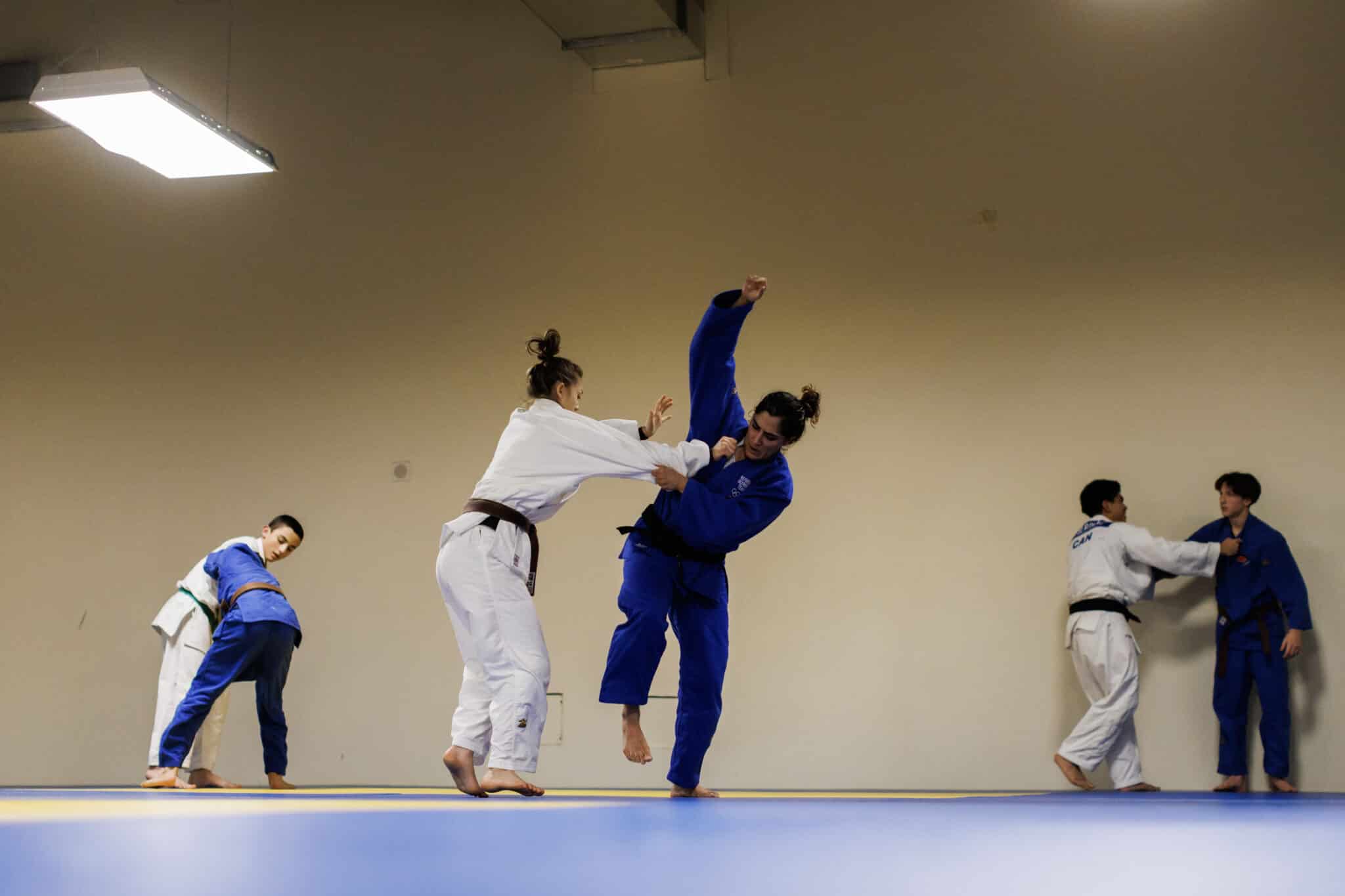
Nigara’s perseverance and athletic ability caught the eye of the International Judo Federation (IJF).
Nicolas Messner, director of media and Judo for Peace program at the IJF, says when they learned about Nigara’s situation, the organization was building its refugee team and decided to include her.
“For many years through the IJF Judo for Peace program and through the IJF refugee team, we were able to support refugees from an educational point of view as well as from a sport point of view,” Messner says.
“Refugees did not ask to be in their situation, and it is our duty to give equal chances to everyone.”
Then in early 2021, Nigara got an email from IJF informing her that she had been selected to be part of the Tokyo 2020 Olympic Refugee Team.
With pandemic restrictions still limiting access to training, Nigara had turned her tiny student dorm room into an improvised gym, using water bottles for weights.
“I felt really proud because from that small space I got to the Olympics,” Nigara says.
Nigara’s Olympic debut in Tokyo was cut short by a severe shoulder injury that required surgery in Japan.
But darker clouds were gathering over her at home. Her family was forced to flee once again to Pakistan because of growing insecurity in Afghanistan.
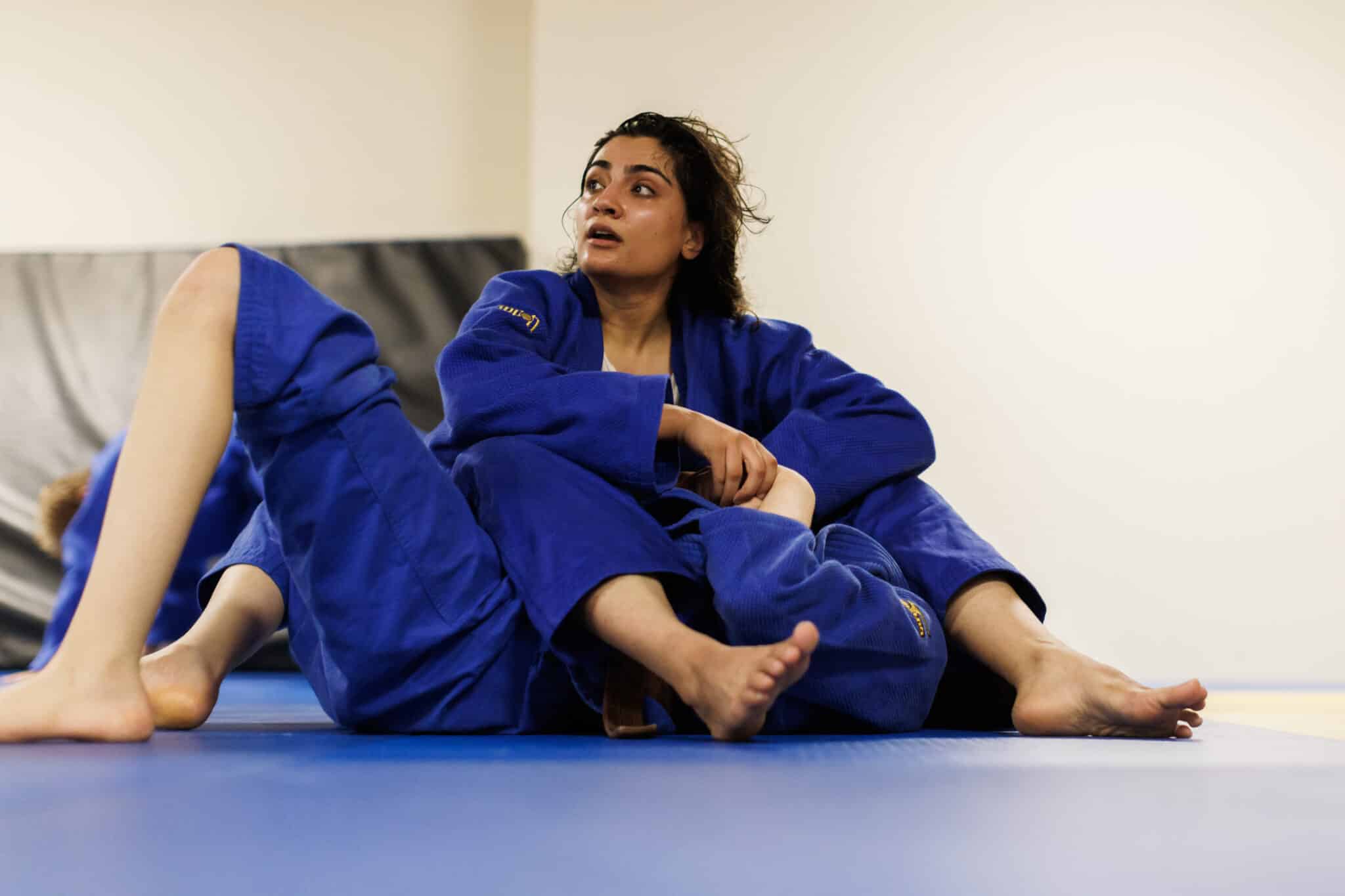
Nigara’s participation in the Olympics also made big headlines in Pakistan. Pictures of Nigara wrestling without wearing the traditional Islamic headscarf had caused uproar in her conservative neighbourhood and even among close relatives.
Nigara’s mother warned her not to tell anyone that she was coming back to Pakistan. When she finally returned, Nigara was confined to her house because of the backlash.
“The only time I went out in Pakistan was at night,” Nigara recalls. “I was afraid. I’d use a face mask so no one would know who I am.”
Unable to work, study or train and constantly worried for her security, Nigara reached out for help to the Olympic Refuge Foundation (ORF) and UNHCR, the UN Refugee Agency.
Gonzalo Barrio, the Refugee Athletes Program Manager at ORF, says having previously worked with World University Service of Canada (WUSC) for the resettlement of James Chiengjiek, Paulo Lokoro and Rose Nathike, who were members of the IOC Refugee Olympic Team Tokyo 2020, they had the opportunity to select another athlete for the program.
“Nigara was the perfect candidate as she already had a postgraduate degree, was a member of the team in Tokyo and was in a difficult situation in Pakistan,” Barrio says. “It was clear she could not practice her sport in safe conditions.”
In addition, Nigara could count on the support of her aunt who was already living in Canada, he adds.
“The Olympic Refuge Foundation is committed to continue offering resettlement opportunities to refugee athletes who do not have a pathway to citizenship in their host country and we are in discussions with WUSC and the National Olympic Committee of Canada to ensure this project is sustainable in the future,” says Barrio.
With the help of the ORF and UNHCR, Nigara found a pathway to come to Canada through a program offered by WUSC.
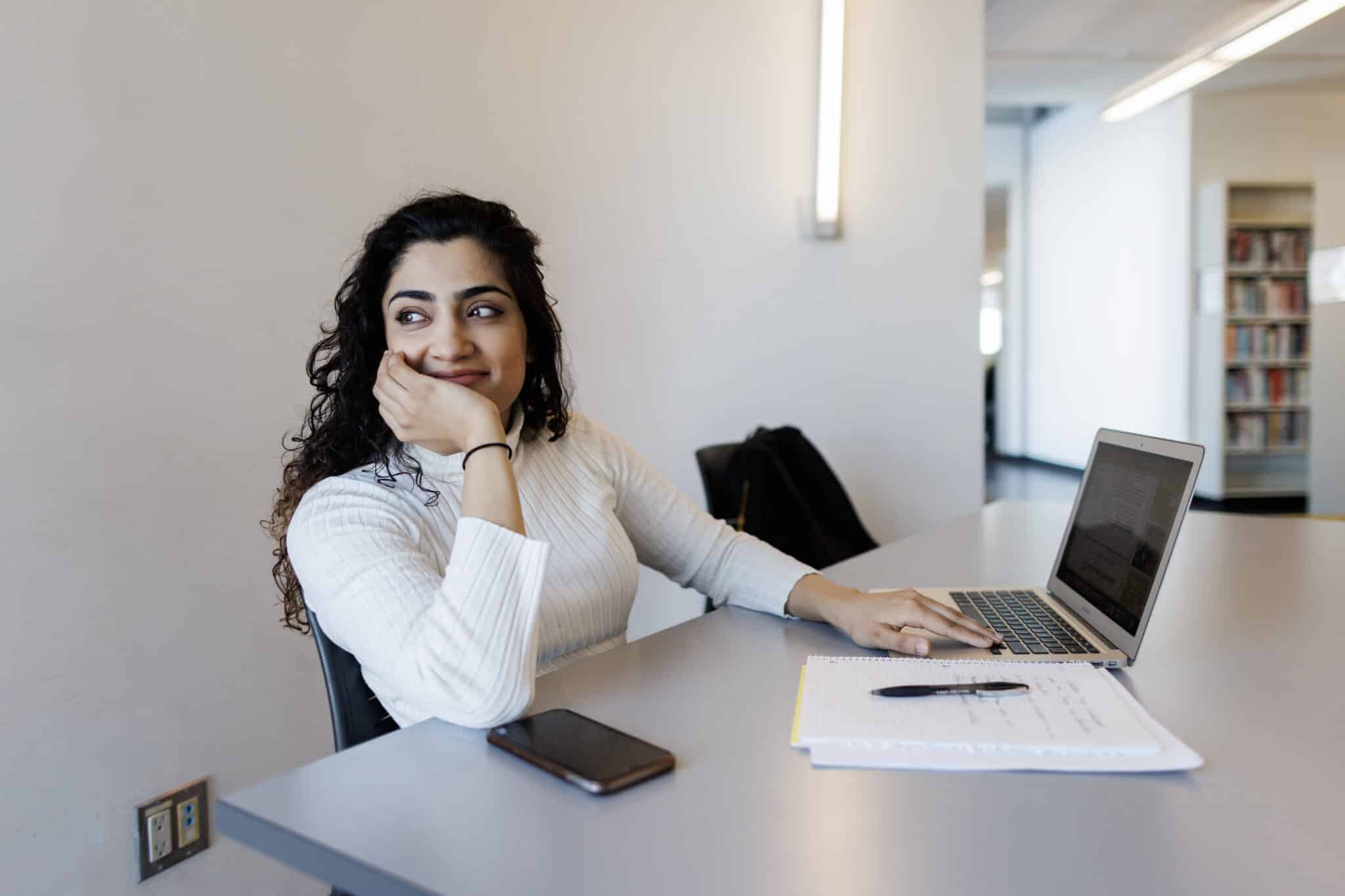
Andrée Ménard, WUSC’s Durable Solutions for Refugees Specialist, interviewed Nigara in February of 2022. Ménard says Nigara impressed her with her curiosity and enthusiasm to learn and explore new horizons despite the potential challenges.
“She strongly believed in the power of athletics to improve mental health. Nigara was also interested in engaging girls in sports and developing sports initiatives for refugee and host communities,” says Ménard.
Nigara is already starting to make good on that promise. In her spare time, between studies at Centennial College for a post-graduate program in International Development and daily judo training, Nigara volunteers online with young women and girls in Afghanistan. She teaches them English and judo in private online classes.
Nigara admits she set ambitious goals for the future, including another run at the Olympics.
“For now, I’m really focusing on Paris 2024. I really want to do well in Paris,” Nigara says. “I want to graduate from college, and of course, I want to be independent. I’d like to have my own apartment, settle down a bit.”
In the longer term, Nigara says she wants to give back to the judo community.
“I want to help refugees through sports because when I was a refugee, it was like a safe haven for me. It really helped me to find myself.”
Originally published by UNHCR June 19, 2023
